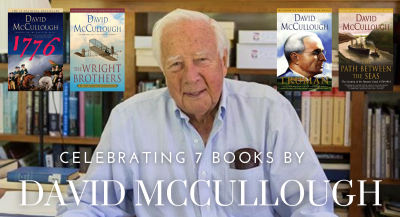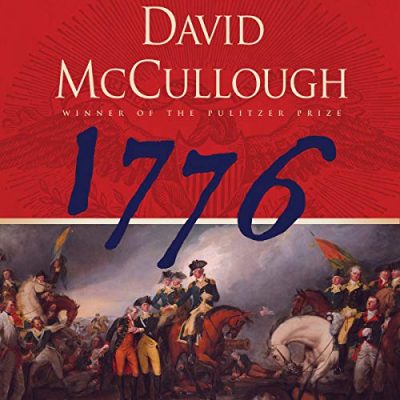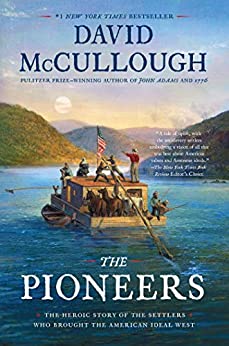
The American Historical Association held its annual conference in-person in Philadelphia, January 5-8, 2023. The conference made the front page of the Arts and Culture section in The New York Times on Monday after the weekend event. It did so because of a column in Perspectives on History posted by James H. Sweet, the AHA President, back in August on the topic of “presentism.” That column and the immediate response was the subject of an earlier blog:
American Historical Association: Presidential Culture Wars Contretemps
September 12, 2022.
The October issue of the publication continued the fight. Below are the highlights made by those responding within the AHA community.
October
“(H)is thoughts are risky because … he comes off as a detractor of The 1619 Project and similar initiatives and thus social justice. In the neoliberal university, where utility is the primary virtue, this weakens this historical profession’s standing even more.”
Ken Mondschein
I am not quite clear if being a detractor of the flawed 1619 Project qualifies one as trying to improve the standing of the history profession or weaken it.
“I am glad that James H. Sweet wrote this column. It did what he intended it to do: it opened a particular conversation about how we “do” history…. As much as academic careers can be built on infighting, we daily have the opportunity to bear witness to a different world of possibility: one where historians, sociologists, political theorists, scholars of religion, and others can compare notes and enrich one another’s work without the nagging desires to police boundaries.”
Malcolm Foley
Although he was invited by AHA to respond to the Sweet column, my reaction is that he instead used the opportunity more to express his own views on the discipline of history without really engaging Sweet.
“I felt exhaustion at having to explain the harm of Sweet’s condescending portrayal of African American’s understanding of history and of his attempt, from his influential office, to delegitimize scholarship on essential topics like race, gender, and capitalism (in a manner that has now drawn the approval of white supremacists)….
“Retraction is appropriate because the essay’s flaws are pervasive and obvious…”
The responder than elaborates on how historians in the past have deployed “presentism” to serve “elite political agendas.”
“(I)n exhorting us not to project ‘today’s antiracism on the past, he [Sweet] adopts a moral superiority toward the past that [a previous AHA president] cautions against…. Sweet attacks scholarly work on ‘race, gender, sexuality, nationalism, capitalism’ as driven by contemporary social justice issues.’ The mind boggles at having to remind a fellow historian that gender and sexuality existed in the ancient world…
“To Sweet, The 1619 Project, the only ‘presentist’ book he names, fails as history because it views the past ‘through the prism of contemporary racial identity’ It is baffling that a journalistic effort stands in for historical scholarship here.”
Here the responder is encroaching into a subject that demands greater attention. No one would care if deeply-flawed 1619 Project was by an obscure publication that everyone beyond a fringe niche ignored. But instead it is a publication of The New York Times and is treated not as a journalistic effort but as historical scholarship just as the use of the books by David McCullough would be if included in the classroom [Historians vs. David McCullough – The Pioneers: The Heroic Story of the Settlers Who Brought the American Ideal West, January 27, 2022; History Scholars versus David McCullough: The American Revolution, January 30, 2022; David McCullough (1933-2022): No R.I.P. – The Culture Wars Continue, September 2, 2022.
“Sweet has contributed to public denigration of the discipline in a time of rampant, politically motivated questioning of humanistic expertise and resource crisis for the discipline. His complaint about a preoccupation with ‘contemporary social justice issues” offers fuel to attacks on the teaching of crucial subjects like race and slavery.”
Priya Satia
One wonders exactly how much sway a single column within the history field carries outside the academic arena.
November
“I love the well-written article [from Sweet] since it seemed to be based on speaking the truth, and I was very disappointed that Sweet inserted an apology at the front of the article…. Excellent job, Dr. Sweet: keep up the good work.”
Scott Green
Hard to believe Green and Satia were referring to the same column. That difference of opinion is an excellent example of how historians bring their own agenda and experiences to their work. How else to explain the divergent opinions of such magnitude from a single source? What a great lesson in how the history discipline works that two people can read the same column and have such contrary reactions.
“Whether intentionally or not, AHA president James H. Sweet’s misguided critique of ‘presentism’ in historical study plays into the hands of ‘presentist’ politicians who are censoring the teaching of history.”
Allan Lichtman
Is this letter-writer referring to the successful Woke effort to control the very words we are obligated to use in the classroom and in public discourse and to the content in college courses or to the successful MAGA effort to do something similar legislatively? As the next paragraph makes clear it is the latter. The next three paragraphs are on how Sweet gives aid and comfort to right-wing attacks.
THE ATLANTIC
The squabble within the history community led to an article by David Frum in The Atlantic, October 30, 2022, entitled “The New History Wars: Inside the Strife set off by an essay from the president of the American Historical Association. The opening line was:
Even by the rancorous standards of the academy, the August eruption at the American Historical Association was nasty and personal.
Frum describes the reaction as an “outrage volcano erupted on social media.” Frum called attention to the coverage by The Wall Street Journal as well as by Fox News. He then wonders “But all the Strum and Dang makes it harder to understand the actual substance of the controversy …Why did so many of his colleagues find it so upsetting even threatening?” Here Frum was echoing the comments of Jay Caspian Kang, columnist for The New York Times, as reported in my previous blog on the subject over the puzzlement about this academic firestorm.
Frum visited Sweet in Madison. The non-Twitter user had been deeply surprised by the reaction to his column. Subsequently, he had come under immense pressure. Sweet had discovered that many of his colleagues and in the history-reading public actually had agreed with him …even if they hesitated to say so publicly. Sweet informed Frum that he had received almost 250 emails which were almost the inverse image of Twitter comments – “’long, considered, thoughtful emails, not just 280-character responses.’”
According to Frum, Sweet worries about the move to de-emphasize the single author manuscript or book, a weakening of the cherished ideals and methods of the historical profession. Frum continues that Sweet’s attempted to erect a firewall to protect the academy from politics and power. He observes that such an effort is contrary to the dominant trend in history, especially African and African-diaspora history. Frum predicts academia will lose this battle with the American public. He declares that this quest to replace the ivory tower history with the actively involved historian for progressive social justice is one that will fail.
Frum then reports on some of the skirmishes within the field of African studies. The logical conclusion is it is more difficult for white scholars trained in African history to find jobs.
Grappling with the Past, Present, and Future: Historians gathered to discuss the influence of contemporary issues and what lies ahead – Jennifer Schuessler, (1/9/23 NYT)
With this background in mind, let us turn to the article covering the conference as if it were a sports event. After summarizing salient portions of Sweet’s column, Schuessler reports on the reaction:
The column provoked a firestorm, which spread along racial and generations fault lines. Many younger historians, cosigned to poorly paid adjunct work in a shrinking job market, saw the out-of-touch complaints of the privileged.
There was an opening-night panel at the conference to address the issue. One attendee commented “But some folks felt it as a stab.” A stab in the back? A stab like a pinprick and not a cleaver? Not clear. Sweet sat near the rear, not a participant.
Schuessler reports that the panel was “short on disagreement, and long on juxtaposition and questions, including a big one: Are the traditional methodologies extolled by Sweet an effective tool of justice and truth, or are they too enmeshed in their own racist past?” In other words, the methodology Sweet advocates for no longer is appropriate. I suspect from what I can glean from the article, that the panel was primarily politically correct and may not have reflected the full diversity of the history community.
Another issue drew Schuessler’s attention:
There was little reference to the widespread dismay that the field was (as a participant at another session put in) ‘in contraction if not collapse.
Schuesssler quotes an historian in the lightning round of closing comments as being blunt: “’We need to talk about money.’”
Sometimes one gets the feeling that academics are like the band playing on after the Titanic has struck the iceberg.
Sweet’s Presidential Address was entitled “Slave Trading as a Corporate Criminal Conspiracy from the Calabar Massacre to BLM, 1767-2022.” He addressed a standing-room crowd which I take to be hundreds of people. For more than one hour, he spoke about a slave-trading family from Liverpool. Back in the 17th century, the patriarch of the family achieved dominance over other traders through a “’gangland-style’” massacre of 400 people in what is today Nigeria. He concluded the family, which still exists and operates today, is a ripe target for reparations.
Sweet then switched gears to speak about presentism. At this point, Schuessler does not fully elaborate on what he said. She does observe that “there was disagreement about whether genuinely open debate was really happening — or could happen. She quotes one historian at the conference saying:
“People are scared to speak honestly sometimes, even what they know to be historically true, because they don’t want to end up on the wrong side.”
These words are eerily familiar to what k-12 students and teachers say along with college students and teachers. Everyone is walking on eggshells trying to get the lay of the land so they don’t ruin their grades or diminish their chances of tenure or promotion.
This culture war puts history museums and organizations in the same battlefield as schools and academic history organizations. While many have eagerly embraced the Woke vocabulary and attitude towards American history others have not. They continue to regard history as they have in the past. As we come closer to the 250th birthday of the country the conflict likely will intensify. People and their organizations will be called on more and more to take a stand on where they stand in the culture wars.
Let me close with an observation made by Frum in his article on Sweet’s column where he reports on the backlash which has occurred.
Critical historians who thought they were winning the fight for control within the academy now face dire retaliation from outside the academy.
It will get worse.








